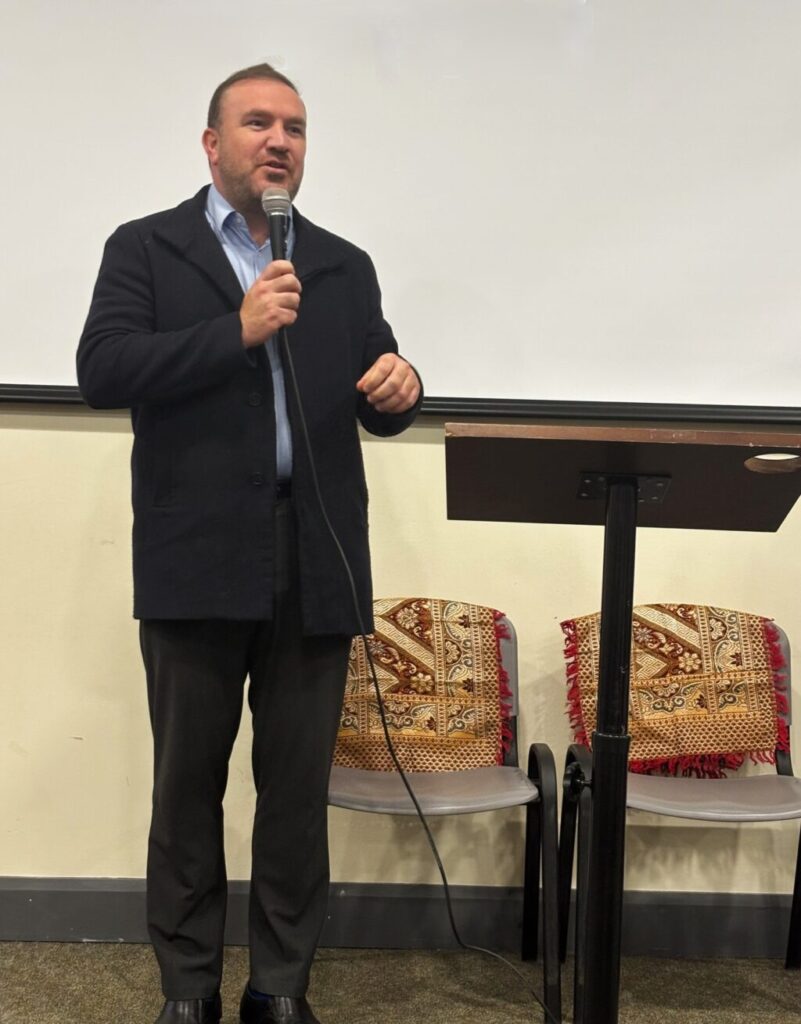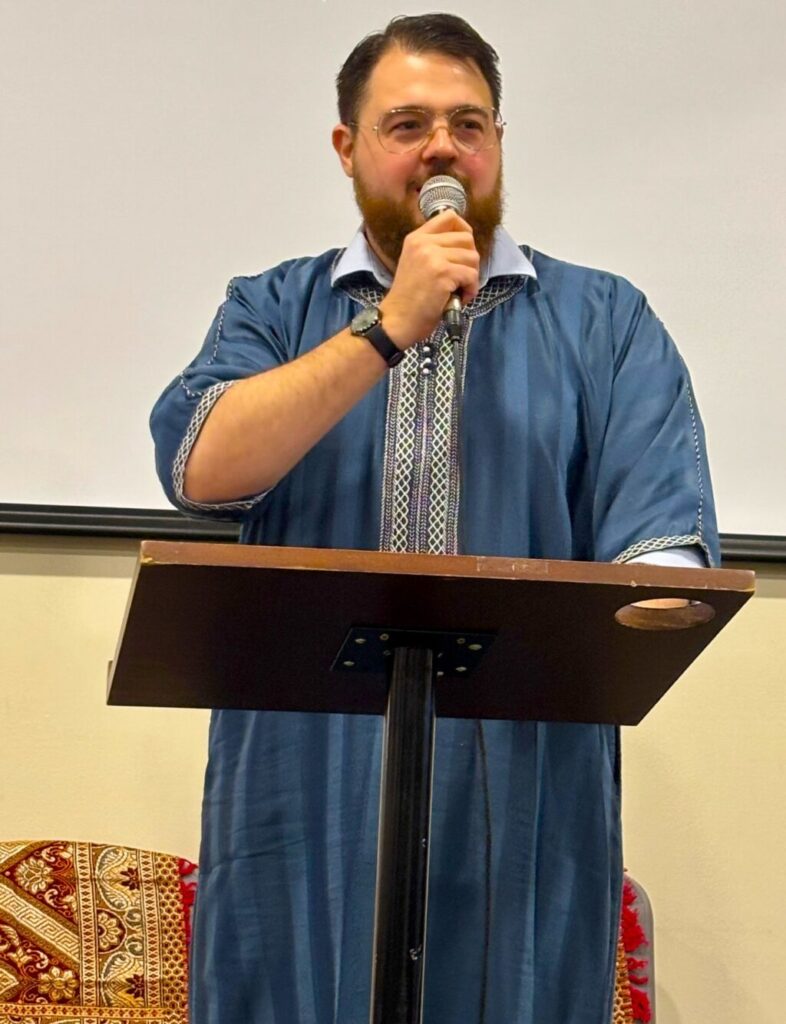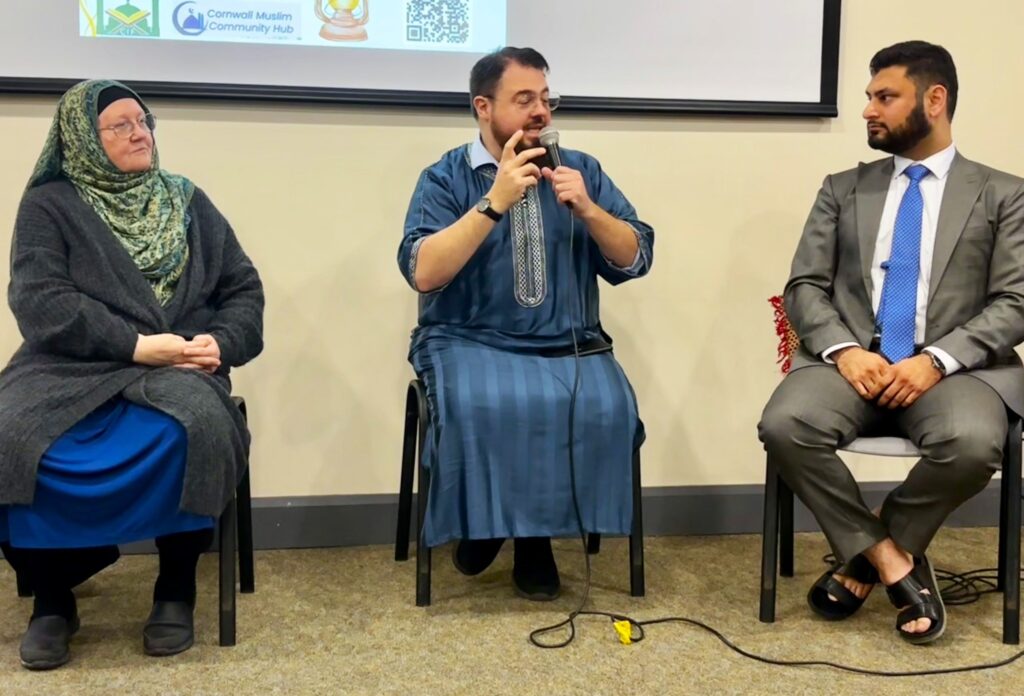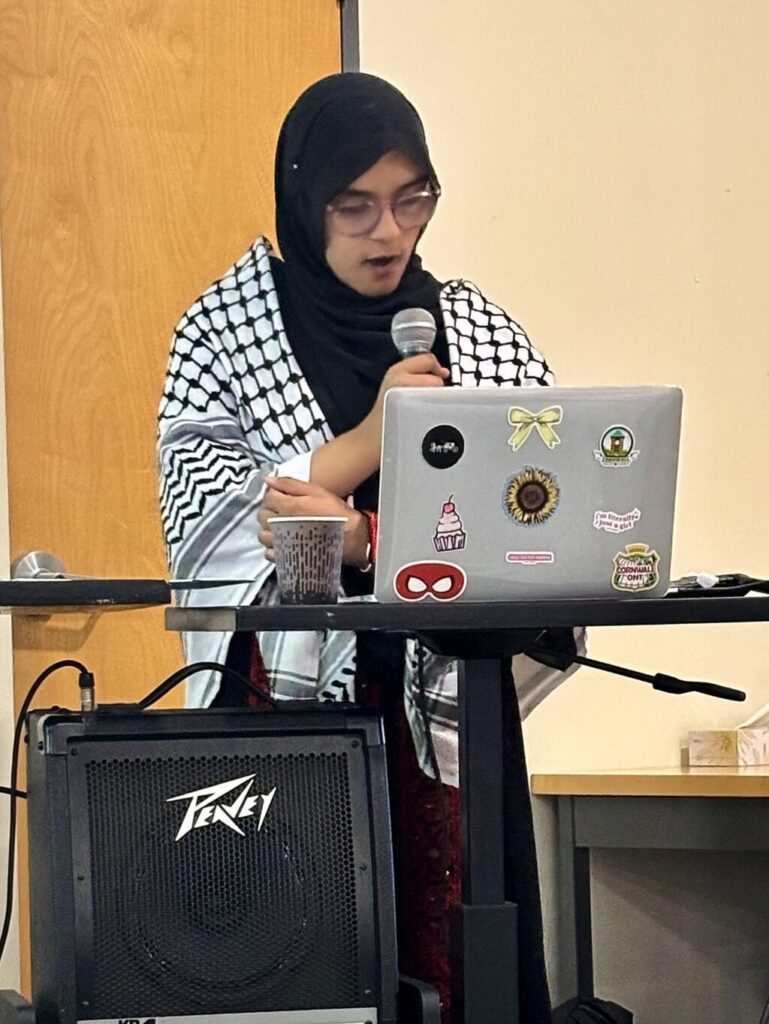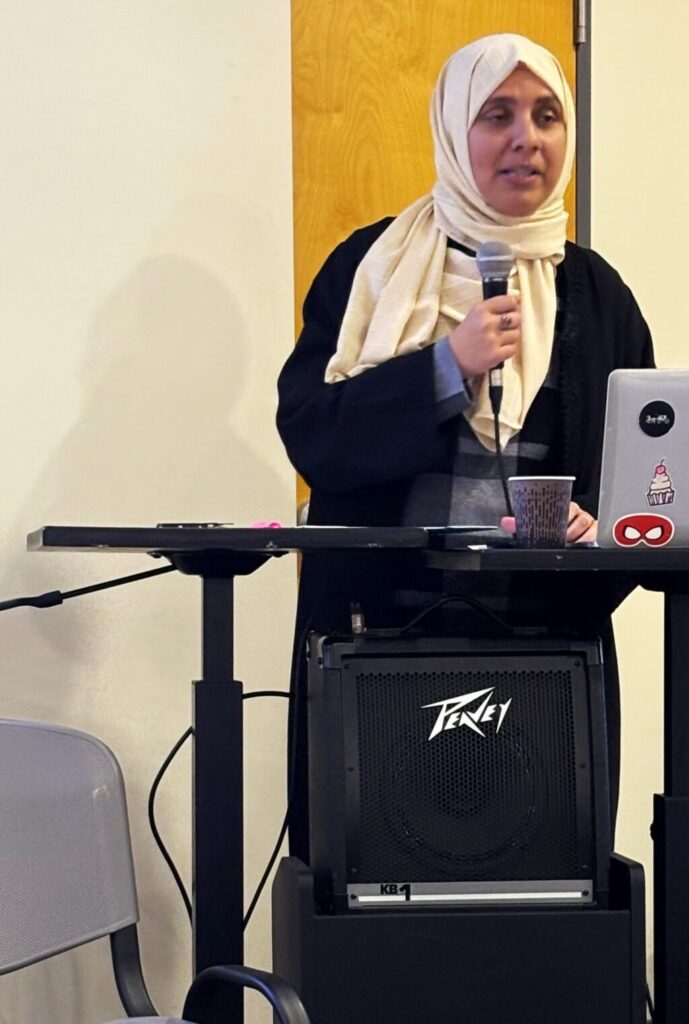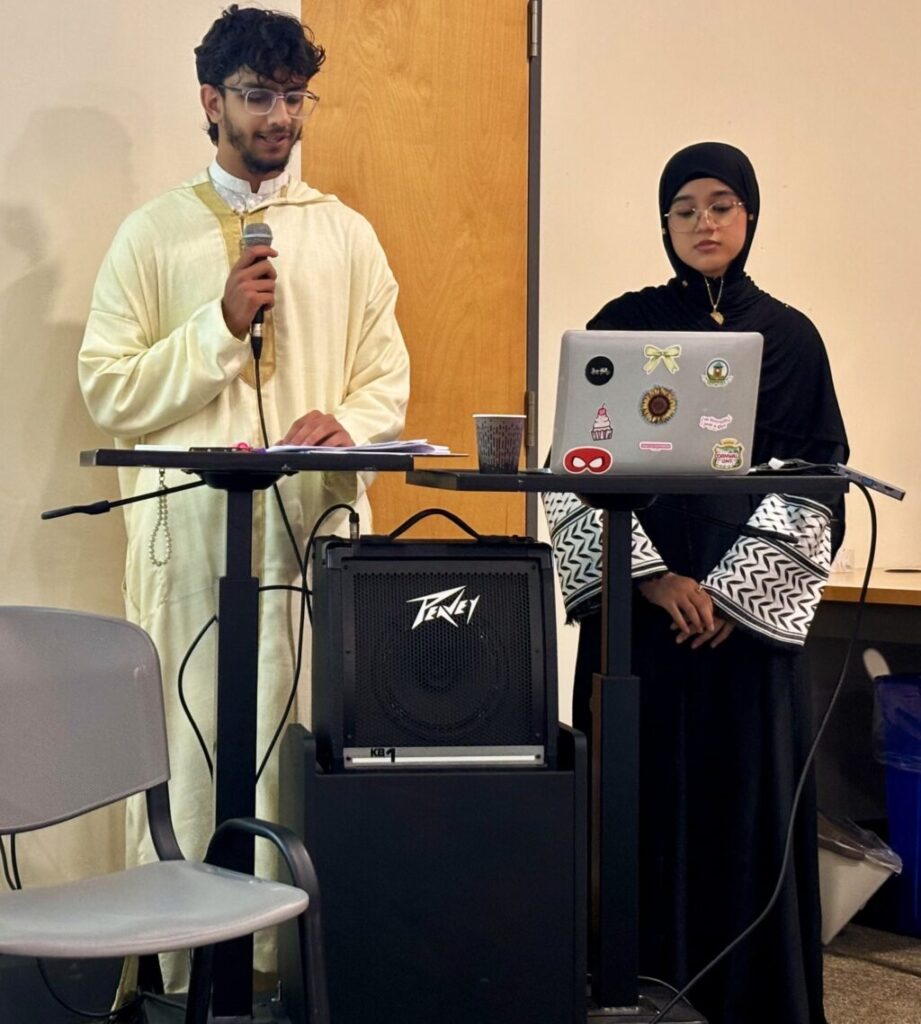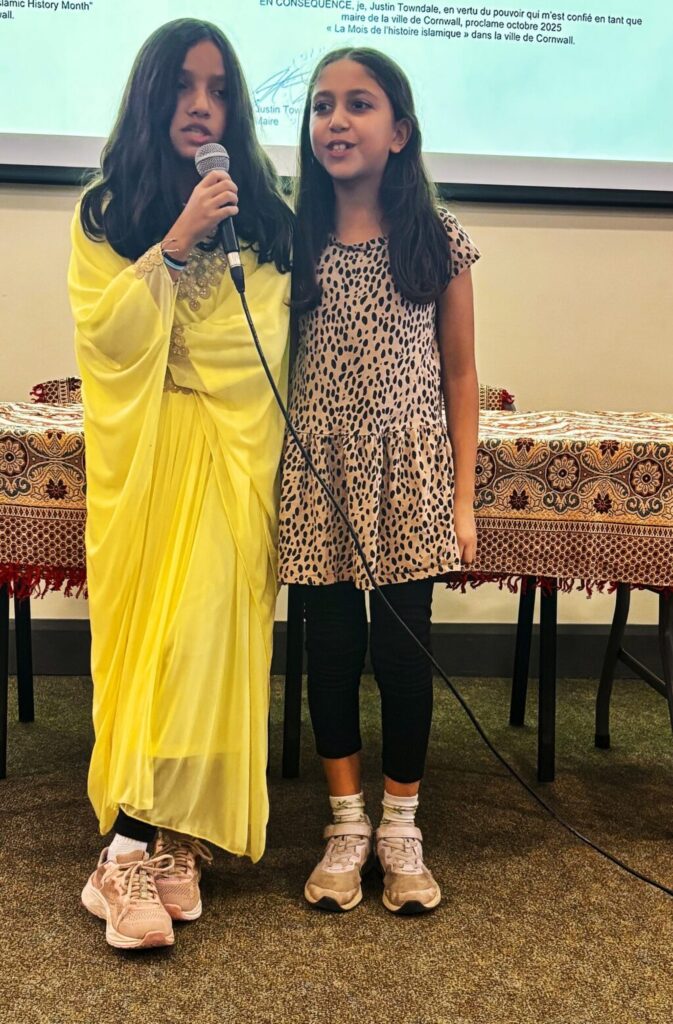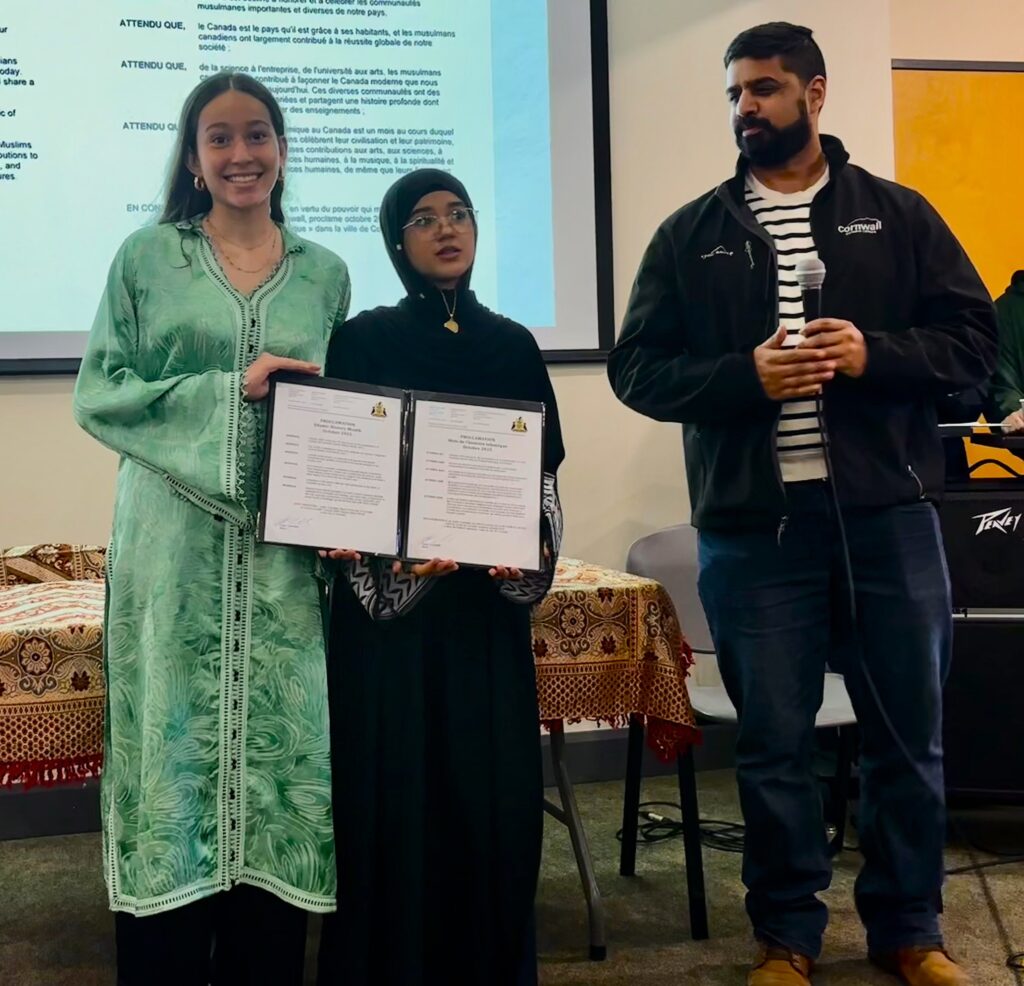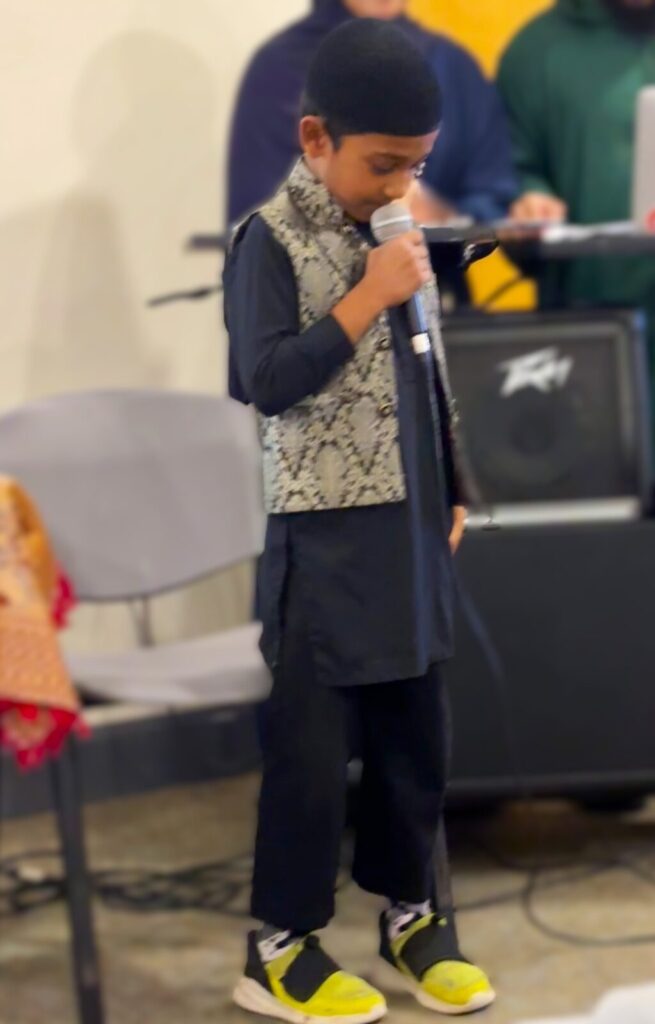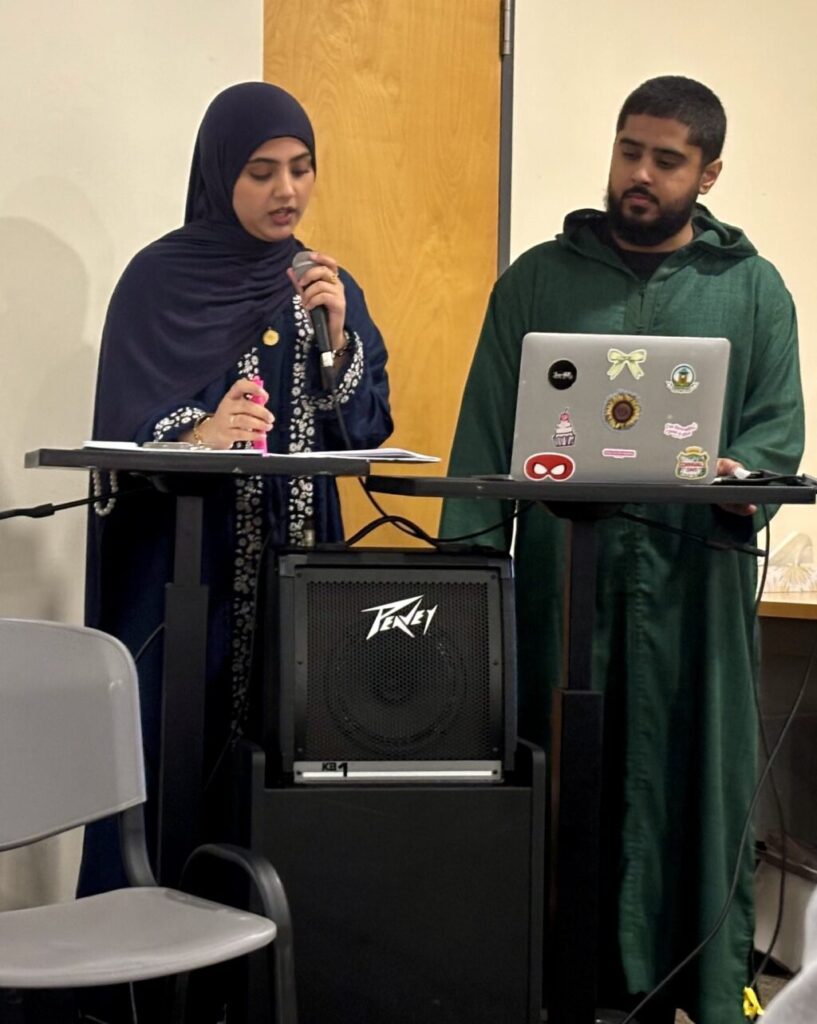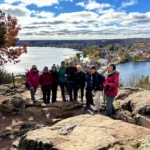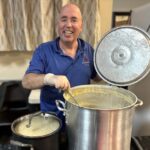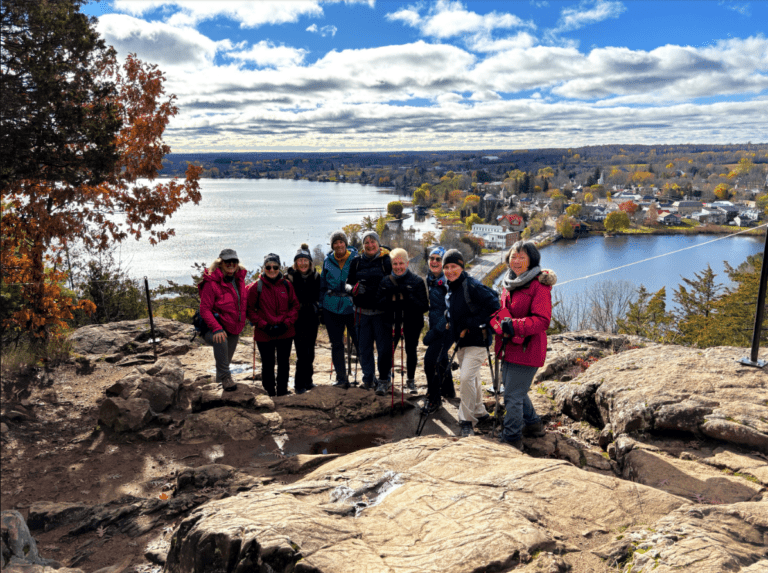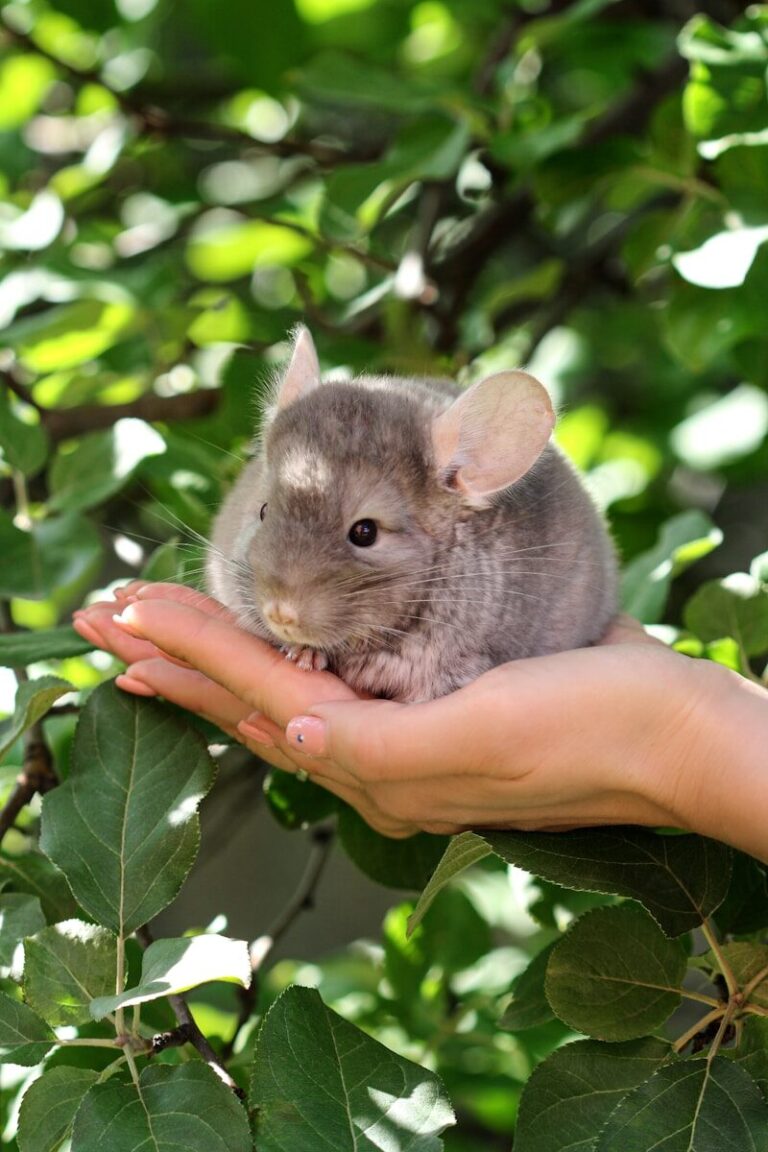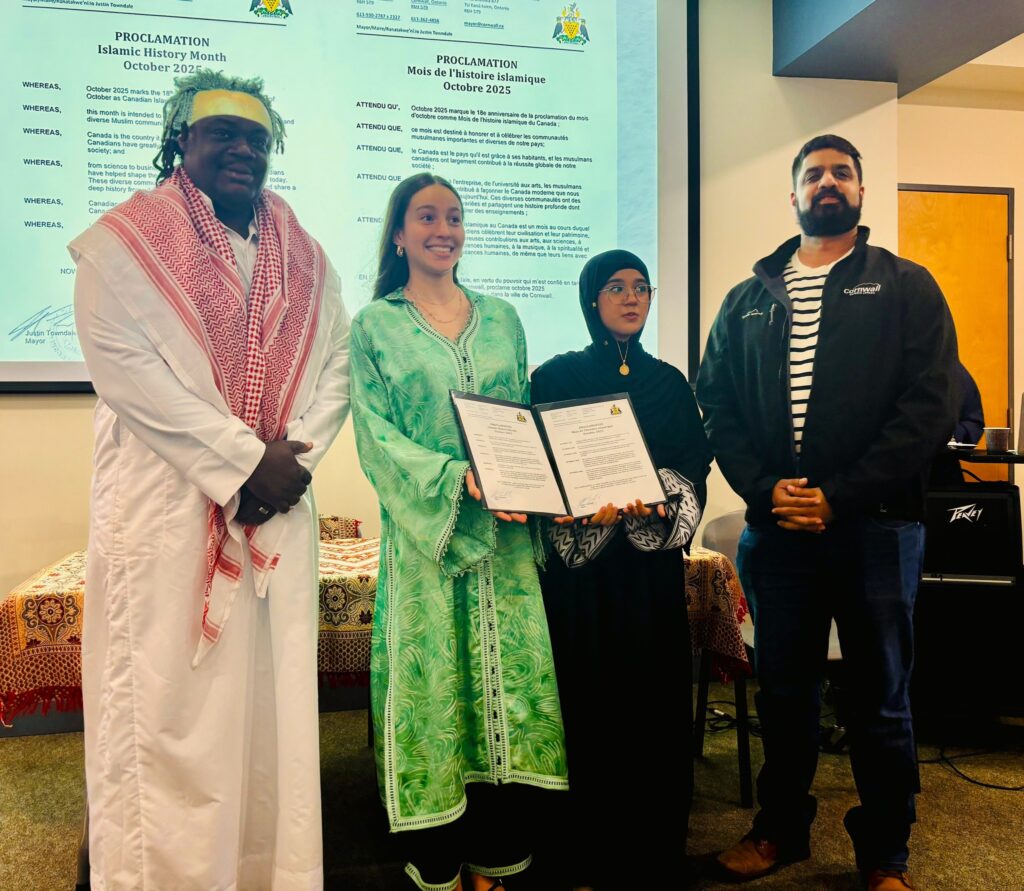
October 2025 marks the 18th anniversary of the Canadian Government’s proclamation of Canadian Islamic History Month. This year’s theme is “Pioneering Muslim Communities in Canada – Cultivating Spaces for Growth and Learning Over Time.” To celebrate Islamic heritage, a community event was held at the Cornwall Public Library on Saturday, October 25th. Mayor Justin Towndale, MP Eric Duncan, and Councillor Fred Ngoundjo were in attendance.
I took this opportunity to learn about Islamic culture and traditions. The event was emceed by siblings, Osama and Haleema Chaudhry. Among the presenters was the Muslim Student Association (United MSA Cornwall), an organization founded in partnership with students of CCVS and St-Lawrence High School. The association’s goal is to foster understanding and unity through leadership, conversation, and service projects while promoting positive changes in schools and the community.
Nawal Saghiri, a speaker, for Initiative Bonnes Actions (Great Actions Initiative) described how the organization was created for newcomers so that they can connect and thrive in their new environment. The non-profit group’s mission is to strengthen intercultural solidarity and belonging through activities that promote well-being, language learning, and community engagement.
Zara Aziz spoke of Prophetic Medicine, a holistic approach to healing the body, mind, and soul, specifically in consuming food prepared and processed in accordance with Islamic dietary laws derived from the teachings of the Quran. The benefits of honey, black seed and olive oil, Awja dates, pomegranate, and figs, were underlined.
An interactive discussion inspired by the pioneering theme, was led by Yousef Vakily, Community Outreach and Youth Engagement Coordinator for the Cornwall Islamic Foundation. He questioned two people from long-standing Muslim families in the community about their experiences coming to Canada, and specifically to Cornwall. In both cases, the presence of the Al Rashid Islamic Institute in Cornwall ultimately influenced the families to move here. Among other topics, they spoke of challenges Muslims faced when they first came to the community. There were no mosques, no halal food sources, no easily accessible traditional clothing, and few resources available to them. They quickly learned that it was up to them to create these opportunities. Muslims came to Canada, according to Yousef, to seek safety and security, for economic opportunities, knowledge and education, freedom of religion, and to give back. “The truth,” he said, “is that Muslims and Canadians share the same ethical DNA, a concern for justice, peace, a love of learning, a respect for family, a belief in human dignity, and a yearning to live in peace with one another.”
Yousef concluded his segment by saying: “As we celebrate Islamic History month, lets honor our pioneers, those who came before us and those who continue our legacy today. Let’s build spaces that nurture faith, learning, and belonging. Let’s remind our neighbours that Islam’s presence here is not a threat but a trust, not an invasion, but an invitation.”
